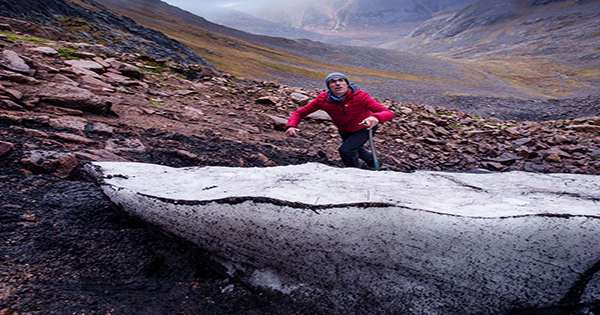The UK’s most durable snow patch has melted away only a short private jet ride away from the COP26 climate negotiations. The Sphinx is a snow patch that may be found 1,296 meters (4,252 ft) on Braeriach, Britain’s third-highest peak, which is part of the Cairngorms, a mountain range in Scotland’s eastern Highlands.
The unusually tenacious snow patch melted away for the eighth time in 300 years last Saturday, the day before the COP26 began out, due to rising temperatures, according to BBC Scotland.
The snow patch had only completely vanished seven times before this recent meltdown: in 1933, 1959, 1996, 2003, 2006, 2017, and 2018. The snow patch was supposed to have been unbroken from the 1700s prior to 1933.
This is a concerning pattern. Iain Cameron, a snow patch specialist, told the BBC that the snow patch is melting more frequently and that climate change is likely to be a cause.
According to a paper [PDF] released in 2020 for the Cairngorms National Park Authority, snow depth in the mountain range has been dropping since the early 1980s, and there may be “very little or no snow by 2080.” In addition, since 1960, the region’s maximum and lowest temperatures have been rising.
Around 140 kilometers (86 miles) north of Glasgow, where global leaders and delegates are now holding the COP26 climate negotiations, the snow patch may be located. Cameron, who has spent the last 25 years researching snow patches in Scotland, recognizes the irony.
“How ironic and foreboding that our longest-lasting patch of snow melted for the third time in five years on the eve of COP26.” Only three times in the previous 150 years has it melted before 2000,” he told the Guardian.
The COP26’s main goal is to discuss the reduction of greenhouse gas emissions required to keep global warming below 1.5 degrees Celsius (2.7 degrees Fahrenheit) over pre-industrial levels.
If this target isn’t met — and there’s no assurance it will — the globe will see far more drastic changes than a melting snow patch, ranging from increased lethal extreme weather events to widespread biodiversity loss.















